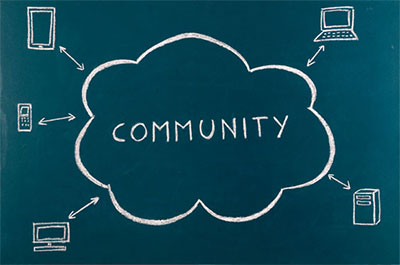This is the second in a series of posts from The Capable Marketer contemplating the Future of Learning.
As the Learning Excellence Director at Brand Learning you'd think I'd be all buttoned down when it comes to capturing my own learning insights. But I'll be honest - I'm not a shining example of best practice filing, or hanging on to all those hand written notes I've made in a session, let alone dusting down that note book from a year ago and revisiting that gem of information or observation I made.
I spend much of my time planning how best to run a learning event, and I think we all intuitively know the best practice principles of workshop design:
- Engage participants before they arrive, (maybe even give them some pre-work)
- Provide participants with opportunities to jot down and record their personal learnings along the way and be sure to capture the great outputs everyone has generated
- Try to sustain all that energy and momentum after everyone has caught their flight home and settled back into their day jobs
But to enable the above to happen we've tended to rely on a range of tools and approaches which are hard to join up, let alone keep track of. That is until now.

In the Re-mastering Learning thinking we recently shared, we painted our vision for how learning in the workplace will go through a transformation over the next couple of years, becoming more personalised, more joined up, and how the role of face to face workshops will evolve to be more problem solving and less teaching. We focused particularly on technology as one of three key drivers impacting this transformation. The great news is that we don't have to wait for all of this technology to be in place - one example is already here, ready to implement today: A pop-up community platform built to provide a paper-less (not free) workshop. This is how it works:
- All the invites, pre-work, participant questions are initiated through the workshop community
- All the resources or materials, whether the charts, videos, supplementary information or tools required by the facilitators are served up via the community for participants to make notes on and provide real-time feedback
- The community stays alive and active for as long as needed, letting new ideas be shared, extra support provided or maybe simply to answer those outstanding questions captured in the car park
- The business benefits hugely, as there is one place where everything is administered, recorded, tracked and measured and there is likely to be an environmental benefit - less paper being produced or being shipped around the world
It's a win-win-win. But perhaps most importantly of all, the participants have a more immersive, longer and more engaging learning experience, so when they do get back to the office, it is that little bit more likely and easier for them to apply all that new found energy and momentum in their job.
We have seen elements of the pop-up community being used already, like using iPads in a workshop to serve up information, documents, enable sharing of ideas or provide feedback – but at the moment it's not yet a fully integrated 'before/during/after' seamless experience.
If you agree the idea has promise, here are a few questions to ask yourself before getting started on building and running your pop-up community:
- Do you have an existing platform that you could adapt or customise or will you need to buy or licence a solution?
- Are there some common features in the way you run your workshops that could be re-applied to make this even more cost effective?
- Do you have the resources to set-up each pop-up community and then manage or administer them effectively?
- What support or training will be required for participants and facilitators to get the maximum benefit from this more end to end experience?
Of course, it goes without saying that I would be only too happy to pop-in and help you answer these questions and any others that pop-up!
This post is by Bruce Levi, Learning Excellence Director at Brand Learning.

